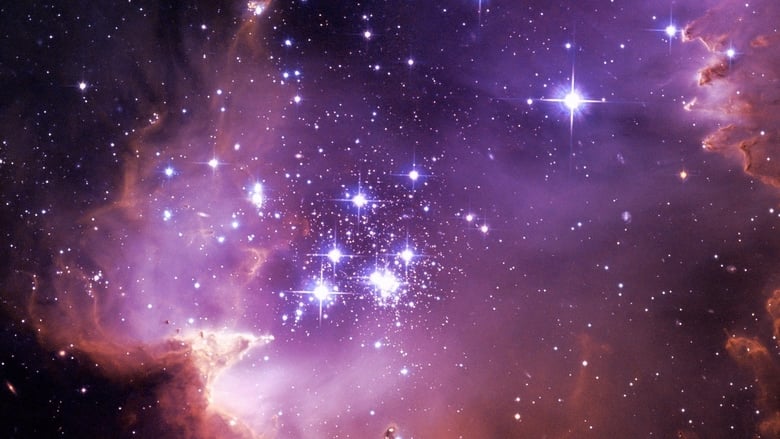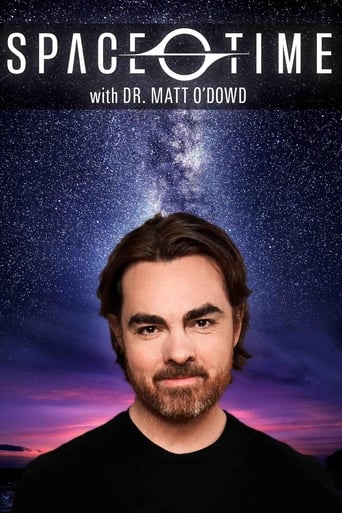
Trailer
Synopsis
Space Time explores the outer reaches of space, the craziness of astrophysics, the possibilities of sci-fi, and anything else you can think of beyond Planet Earth with our astrophysicist host: Matthew O’Dowd.
Episode 33 : What If There's A Black Hole Inside The Sun? | Hawking Stars
December. 20,2023
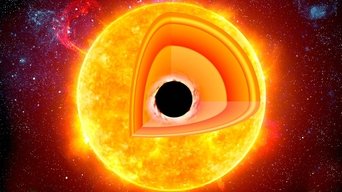
Episode 32 : What if Humans Are NOT Earth's First Civilization? | Silurian Hypothesis
December. 07,2023
Episode 31 : Does Many Worlds Explain Quantum Probabilities?
November. 30,2023
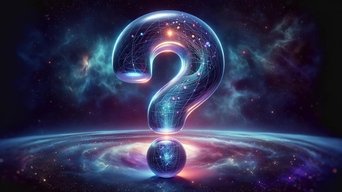
The mystery of what happens when we go from a superposition to a definite state is known as the Measurement Problem, and it’s arguably the most mysterious outstanding problem in physics. The different interpretations of quantum mechanics are really about solving the measurement problem. But Many Worlds offers one thing that the other interpretations do not: there’s no collapse of the wavefunction - which might be the key to solving the measurement problem?
Episode 30 : What If Gravity is NOT Quantum?
November. 09,2023
The holy grail of theoretical physics is to come up with a quantum theory of gravity. But after a century of trying we really have no idea how close we are, or it it's even possible. But we shouldn't feel bad because it turns out that the universe is doing everything it its power to make this as difficult as possible. Or it's telling us that it isn't. Should we take the hint?
Episode 29 : How Will We (Most Likely) Discover Alien Life?
November. 02,2023
Episode 28 : Why Did Attosecond Physics Win the NOBEL PRIZE?
October. 19,2023
Whenever we open a new window on the universe we discover something new. Whether it's figuring out how to see to greater distances like with telescopes, or down to smaller size-scales like with microscopes, or perhaps expanding our vision to new wavelengths of light or via exotic means such as in neutrinos or gravitational waves. Well, the 2023 Nobel prize in physics has been awarded to three physicists for opening just such a new window—but it's not a window to a new size scale or a new mode of seeing—-it’s for a new window in time. It’s for attosecond physics—the billionth of a billionth of a second that represents the timescale of the insides of atoms. This year’s Nobel in physics is for a microscope in time.
Episode 27 : The Farthest Star Ever Seen!
October. 12,2023
To understand where we came from—how earth, the solar system, the galaxy became what they are today—we need to understand the beginning of time. For example, how did the first galaxies pull themselves together from the dark universe-filling ocean of gas that followed the Big Bang? With the James Webb Space Telescope we’re starting to be able to find those first galaxies. It’s hard work because at those crazy distances all we see is tiny, faint and fuzzy blobs. If only we could see the individual stars in those galaxies we could learn so much more. Well, now using this one weird trick we can do exactly that. Or at least we have one lonely star at the end of the universe. But it won’t be lonely for long.
Episode 26 : Are Pilot Wave & Many Worlds THE SAME Theory?
September. 28,2023
It’s hard to interpret the strange results of quantum mechanics, though many have tried. Interpretations range from the outlandish—like the multiple universes of Many Worlds, to the almost mundane, like the very mechanical Pilot Wave Theory. But perhaps we’re converging on an answer, because some are arguing that these two interpretations are really the same thing.
Episode 25 : Are Room Temperature Superconductors IMPOSSIBLE?
September. 20,2023
Superconductive materials seem miraculous. Their resistanceless flow of electricity has been exploited in some powerful ways—from super-strong magnets used in MRIs, particle accelerators and fusion plants. And then there’s, their bizarre ability to levitate in magnetic fields. But the broader use of superconductors is limited because they need to be cooled to extremely low temperatures to work. But what if we could produce superconductivity at room temperature? It would change the world.
Episode 24 : What NEW SCIENCE Would We Discover with a Moon Telescope?
September. 13,2023
In order to see the faint light from objects in deepest space, astronomers go to the darkest places on the planet. In order to listen to their quite radio signals, they head as far from any radio-noisy humans as possible. But there’s nowhere on the earth, or even orbiting the Earth, that’s far enough to hear to the faint radio hum from the time before stars. In fact, we may need to build a giant radio telescope in the quietest place in the solar system—the far side of the moon.
Episode 23 : What If Space is NOT Empty?
August. 24,2023
Spacetime on its smallest scales is a seething ocean of black holes and wormholes flickering into and out of existence—or so many physicists think has to be the case. But why should we take this spacetime foam seriously if we’ve never seen any evidence of it?
Episode 22 : Did JWST Discover Dark Matter Stars?
August. 16,2023

We knew that the James Webb Space Telescope would find interesting stuff, especially about the mysterious early times. For example, there are hints that the galaxies we’re seeing are brighter and more regular than expected given the short amount of time they’d had to grow. Well, perhaps no one was expecting that we’d find a completely new type of star—one mostly made of and powered by dark matter and shining as bright as an entire galaxy. Which, by the way, might help us explain those pesky giant galaxies.
Episode 21 : Do We Need a NEW Dark Matter Model?
August. 02,2023

We have no idea what dark matter is, other than it’s some source of gravity that is completely invisible but exerts way more pull that all of the regular matter. More than all of the stars, all of the gas, all of the black holes…unless dark matter is black holes, then black holes are most of everything. Dark matter constitutes 80% or so of the mass in the universe, which means even our Milky Way galaxy is mostly a vast ball of dark matter that happens to have attracted a relative sprinkling of baryons—atoms in the form of gas, which lit up as starry glitter spinning in the middle of this invisible gravitational well.
Episode 20 : Was the Gravitational Wave Background Finally Discovered?!?
July. 26,2023

A few weeks ago a large team of gravitational wave astronomers announced something pretty wild. The moderately confident detection of pervasive ripples in the fabric of space time that presumably fills the cosmos, detected by watching for subtle connections between the signals from rapidly spinning cores of dead stars in our galactic neighborhood. In other words, the gravitational wave background has probably been detected using a pulsar timing array.
Episode 19 : What If The Speed of Light is NOT CONSTANT?
July. 19,2023
One of the most fundamental physics facts is that the speed of light in a vacuum is constant for all observers. But can we really be sure that the speed of light wasn’t different in the past, or perhaps in other parts of the universe? In fact, variable speed of light theories have long been used to try to explain everything from dark energy to gravity itself. Let’s explore how constant this fundamental constant really is.
Episode 18 : Does Axionic Dark Matter Bind Galaxies Together?
June. 28,2023
Quantum mechanics is our best theory of the fundamental nature of reality, but it's usually only distinguishable from familiar classical mechanics on the smallest scales. However, there are some fringe cases where its distinct features manifest on scales we can observe—in things like superfluids, or the interiors of collapsed stars. But it’s also possible that our entire galaxy is filled with a reverberating quantum mechanical wave that literally holds the galaxy together—and in fact explains all the dark matter that we see across the universe. And this isn’t even a fringe theory. It’s axionic dark matter.
Episode 17 : Did AI Prove Our Proton Model WRONG?
June. 21,2023

The humble proton may seem simple enough, and they’re certainly common. People are made of cells, cells are made of molecules, molecules are made of atoms, atoms are made of electrons, protons, and neutrons. And protons are each made of three up or down quarks. Simple stuff, right? All except for that last part. Protons are actually made of many, many quarks that happen to look like three only when we look at them in a particular way. And even then, sometimes they’re made of 5 quarks - including the charm quark.
Episode 16 : What Supernova Distance Would Trigger Mass Extinction?
June. 14,2023

The deaths of massive stars results in one of the most beautiful and violent events in the universe: the supernova. They are so luminous we can see them here on Earth and historical records show that we can even see them into the day. But supernovas release deadly and violent radiation that could destroy our atmosphere. So how far away do these supernova have to be for humanity to be safe? And when will the next supernova occur
Episode 15 : Can We Move PLANET EARTH Across the Universe?
May. 31,2023
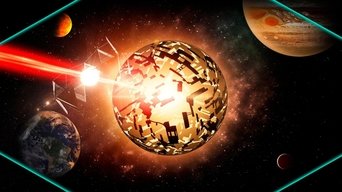
Interstellar travel is horrible-what with the cramped quarters of your spaceship and only the thin hull separating you from deathly cold and deadly cosmic rays. Much safer to stay on here Earth with our gloriously habitable biosphere, protective magnetic field, and endless energy from the Sun. But what if we could have the best of all worlds? No pun intended. What if we could turn our entire solar system into a spaceship and drive the Sun itself around the galaxy? Well, I don't know if we definitely can, but we might not not be able to.
Episode 14 : Is 'Perpetual Motion' Possible with Superfluids?
May. 24,2023

The weird rules of quantum mechanics lead to all sorts of bizarre phenomena on tiny scales— particles teleporting through walls or being in multiple places at once or simultaneously existing and not. Shame all this magical behavior doesn’t happen on scales large enough for us to see. Except that there is a way for us to see large-scale quantum weirdness, and that’s Bose-Einstein Condensates & Superfluids.
Episode 13 : Finding Alien Spacecraft with Gravitational Waves
May. 17,2023
Whenever we open a new window on the universe, we discover things that no one expected. Our newfound ability to measure ripples in the fabric of spacetime—gravitational waves—is a very new window, and so far we’ve seen a lot of wild stuff. We’ve observed black holes colliding, and their oddly high masses challenges our understanding of black hole formation and growth. We’ve seen colliding neutron stars that have forced us to rewrite our ideas of how many of the elements of the periodic table get made. But what else might be hiding in the ripples’ of spacetime? Oh, I know: how about the gravitational wakes caused by planet-sized alien spacecraft accelerating to near light speed.
Episode 12 : Understanding One of Physics' Most Challenging Topics!
May. 11,2023
If I roll a pair of dice and you get to bet on one number, what do you choose? The smart choice is 7 because there are more ways for 2 dice to come up 7 than any other number. Well, it turns out that you can apply the same logic to predicting the behavior of the universe. Let’s see how some of our most powerful tools in physics are really a game of cosmic craps.
Episode 11 : NEW DISCOVERY About Supermassive Black Holes Explained!
March. 20,2023

Astrophysicists have discovered a black hole that for millions of years has been blasting vast particle beams in opposite directions across the sky. And has recently swiveled to point its one of these jets directly at us. Is this an intergalactic death ray of an alien civilization that has suddenly noticed us? Absolutely not, and there’s no danger at all. But it’s a pretty cool phenomenon anyway, and something we’ve never seen before.
Episode 10 : How Far Beyond Earth Could Humanity Spread?
March. 12,2023

We humans have always been explorers. The great civilizations that have arisen across the world are owed to our restless ancestors. These days, there’s not much of Earth left to explore. But if we look up, there’s a whole universe out there waiting for us. Future generations may one day explore the cosmos and even settle entire other galaxies. But there is a hard limit to how much of the universe we can expand into. So, how big can humanity get?
Episode 9 : How Much Of The Universe Can Humanity Ever See?
March. 29,2023

There’s an absolute limit to our access to the universe beyond our own galaxy. There’s a limit to what we can ever hope to explore or send signals to, and a very different limit to what we can ever hope to witness. Today we’re going to explore the latter. We’re going to figure out the absolute limit of our future view of the universe, and of the universe’s ability to influence us. Next time we’ll turn it around and ask: how much of the external universe can WE potentially influence, and even explore?
Episode 8 : What If Black Holes ARE Dark Energy?
March. 22,2023

We tend to imagine there are connectings between things that we don’t understand. Quantum mechanics and consciousness, aliens and pyramids, black holes and dark matter, dark matter and dark energy, dark energy and black holes. Usually there’s no real relationship whatsoever, but this last pair—black holes and dark energy being the same thing—has received some recent hype in the press. Let’s see if it might actually be true.
Episode 7 : What’s Your Brain’s Role in Creating Space & Time?
March. 15,2023
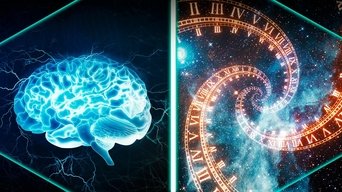
Physics is the business of figuring out the structure of the world. So are our brains. But sometimes physics comes to conclusions that are in direct conflict with concepts fundamental to our minds, such as the realness of space and time. How do we tell who’s correct? Are time and space objective realities or human-invented concepts?
Episode 6 : What If Space And Time Are NOT Real?
February. 23,2023
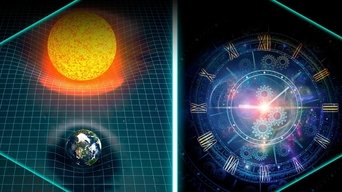
Physics progresses by breaking our intuitions, but we’re now at a point where further progress may require us to do away with the most intuitive and seemingly fundamental concepts of all—space and time.
Episode 5 : How Does The Nucleus Hold Together?
February. 15,2023

Two protons next to each other in an atomic nucleus are repelling each other electromagnetically with enough force to lift a medium-sized labradoodle off the ground. Release this energy and you have, well, you have a nuclear explosion. Just as well there's an even stronger force than the electromagnetism holding our nuclei together. But it's not the strong force, as you might have imagined. At least not directly. Nuclei are held together by a quirk of nature, without which we would have no complex atoms, no chemistry, and certainly no labradoodles.
Episode 4 : How Earth REALLY Moves Through the Galaxy
February. 08,2023

Perhaps you’ve seen videos of how the planets of the solar system move through the universe in this cool helix. Not only are these misleading, but the Earth’s real motion - YOUR motion through the universe, is way more complicated and way more interesting.
Episode 3 : What If Alien Life Were Silicon-Based?
January. 26,2023

Life as we know it is carbon-based, but does it have to be this way? There’s another element on the periodic table that shares some of the key properties of carbon but is far more abundant on most planets. I’m talking about silicon. So is there silicon-based life out there?
Episode 2 : What If The Universe Is Math?
January. 18,2023
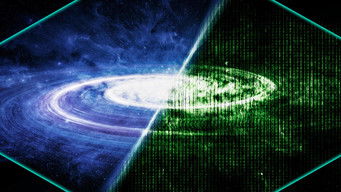
In his essay “The Unreasonable Effectiveness of Mathematics”, the physicist Eugine Wigner said that “the enormous usefulness of mathematics in the natural sciences is something bordering on the mysterious”. This statement was inspired by the observation that so many aspects of the physical world seem to be describable and predictable by mathematical equations to incredible precision especially as quantum phenomena. But quantum phenomena have no subjective qualities and have questionable physicality. They seem to be completely describable by only numbers, and their behavior precisely defined by equations. In a sense, the quantum world is made of math. So does that mean the universe is made of math too? If you believe the Mathematical Universe Hypothesis then yes. And so are you.
Episode 1 : The NEW SCIENCE of Moon Formation
January. 11,2023

Einstein once asked whether “the moon exists only when I look at it?". It was rhetorical objection to the idea that measurement in quantum mechanics causes reality to become real. But there was a time when the moon didn’t exist, and then hours later suddenly did. At least, according to the latest simulations of its formation.
Seasons
Similar titles
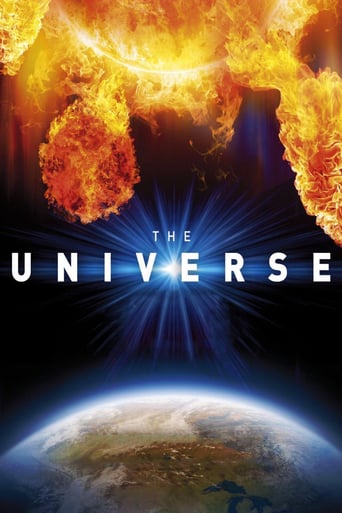
Prime Video
The Universe
From the planets to the stars and out to the edge of the unknown, history and science collide in a wondrous yet deadly adventure through space and time.

HULU
Critter Fixers: Country Vets
100 miles south of Atlanta, Dr. Hodges and Dr. Ferguson are two longtime friends who own and operate Critter Fixer Veterinary Hospital. Together with their loving staff, Drs. Hodges and Ferguson treat and care for over 20,000 patients. Between emergency visits to the office, and farm calls throughout rural Georgia - the Critter Fixers are constantly bombarded with unique cases you only see in the country.

Quanta Magazine
Explore mind-bending developments in basic science and math research. Quanta Magazine is an award-winning, editorially independent magazine published by the Simons Foundation.
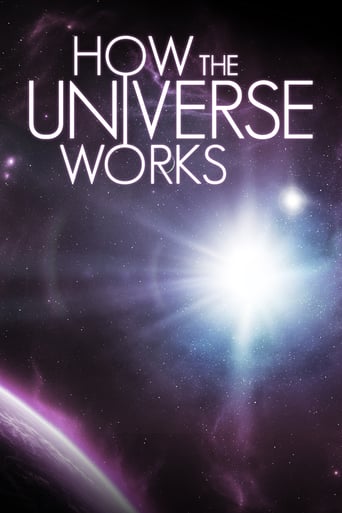
Prime Video
How the Universe Works
A users' guide to the cosmos, from the Big Bang to galaxies, stars, planets and moons: where did it all come from and how does it all fit together? A primer for anyone who has ever looked up at the night sky and wondered.
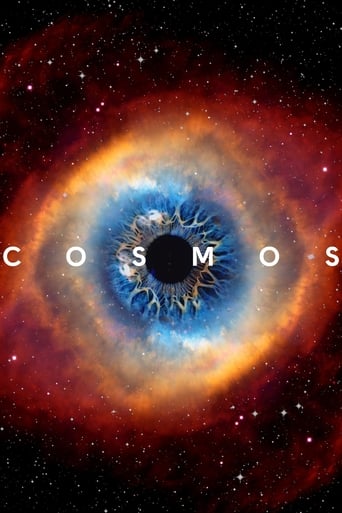
Cosmos
Famed astrophysicist Neil deGrasse Tyson provides clarity for the vision of the cosmos as he voyages across the universe with never-before-told stories that delve into the scientific concepts of the laws of gravity and the origins of space and time.

The Bell System Science
The Bell System Science Series consists of nine television specials made for the AT&T Corporation that were originally broadcast in color between 1956 and 1964. Marcel LaFollette has described them as "specials that combined clever story lines, sophisticated animation, veteran character actors, films of natural phenomena, interviews with scientists, and precise explanation of scientific and technical concepts — all in the pursuit of better public understanding of science.
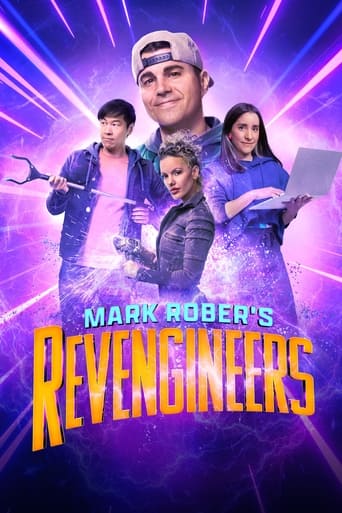
Max
Mark Rober's Revengineers
Mark Rober, former NASA engineer and current Apple engineer, created a viral glitter prank to serve justice to doorstep delivery thieves. Now you can join him and his team to take down the morally impaired. He'll build a trap, set the bait and wait.
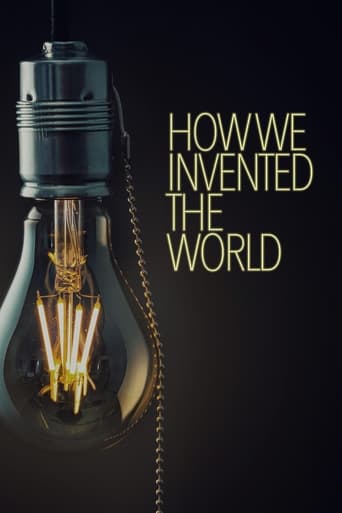
How We Invented The World
How We Invented the World is the ultimate action-packed, hi-energy, landmark series that examines the four inventions that define the modern world - mobiles, cars, planes and skyscrapers -celebrating the people and connections that made them possible. Each playing a crucial role in where we are now in the 21st Century - able to travel the globe, to talk to one another at any time at the push of a button, to live in huge cities, to commute, to capture the world we live in, making the fantasies we create come to life. This four part series lifts the lid on how these iconic inventions came to be. Showcasing the people who have shaped our lives in ways that they could have never imagined or anticipated, this series reveals stories of human ingenuity, extraordinary connections, unprecedented experimentation and jaw dropping accidents that created the world as we know it.
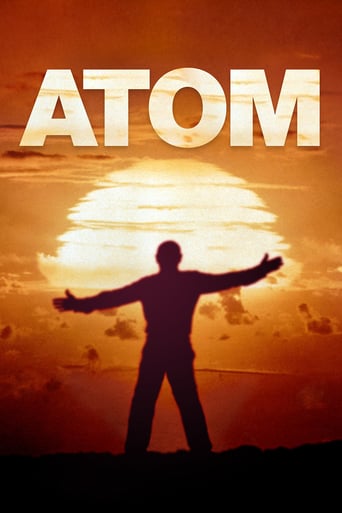
Prime Video
Atom
The story of the discovery that everything is made from atoms, one of the greatest scientific breakthroughs in history, and the brilliant minds behind it.
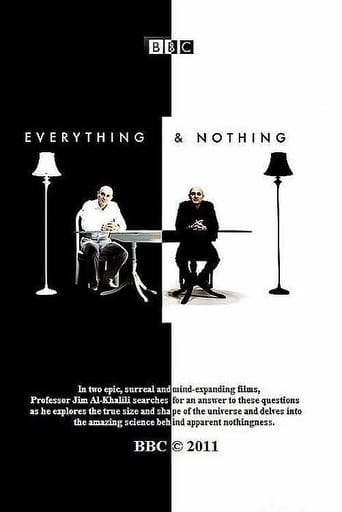
Everything and Nothing
Two-part documentary which deals with two of the deepest questions there are - what is everything, and what is nothing? Professor Jim Al-Khalili searches for an answer to these questions as he explores the true size and shape of the universe and delves into the amazing science behind apparent nothingness.
Related

Netflix
Gilmore Girls: A Year in the Life
Set nearly a decade after the finale of the original series, this revival follows Lorelai, Rory and Emily Gilmore through four seasons of change.

Prime Video
The Lord of the Rings: The Rings of Power
Beginning in a time of relative peace, we follow an ensemble cast of characters as they confront the re-emergence of evil to Middle-earth. From the darkest depths of the Misty Mountains, to the majestic forests of Lindon, to the breathtaking island kingdom of Númenor, to the furthest reaches of the map, these kingdoms and characters will carve out legacies that live on long after they are gone.

Netflix
Love
Rebellious Mickey and good-natured Gus navigate the thrills and agonies of modern relationships.
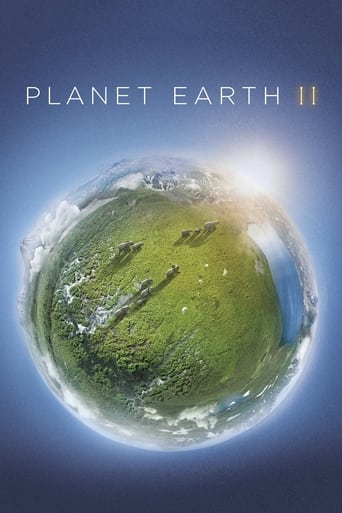
Max
Planet Earth II
David Attenborough presents a documentary series exploring how animals meet the challenges of surviving in the most iconic habitats on earth.

Disney+
Star Wars: Tales of the Jedi
Journey into the lives of two distinctly different Jedi from the prequel era – Ahsoka Tano and Count Dooku. Each will be put to the test as they make choices that will define their destinies.
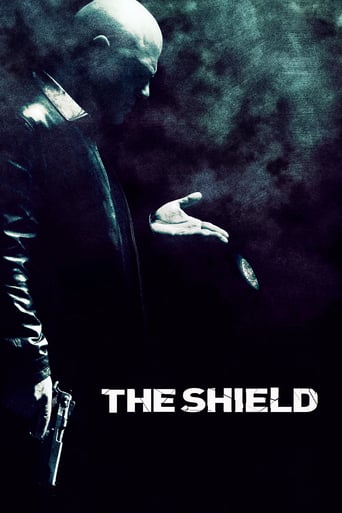
HULU
The Shield
The story of an inner-city Los Angeles police precinct where some of the cops aren't above breaking the rules or working against their associates to both keep the streets safe and their self-interests intact.

Max
Last Week Tonight with John Oliver
A half-hour satirical look at the week in news, politics and current events.

Disney+
Secret Invasion
Nick Fury and Talos discover a faction of shapeshifting Skrulls who have been infiltrating Earth for years.

HULU
Quantico
A diverse group of recruits has arrived at the FBI Quantico Base for training. They are the best, the brightest and the most vetted, so it seems impossible that one of them is suspected of masterminding the biggest attack on New York City since 9/11.

Nikita
Nikita will stop at nothing to expose and destroy Division, the secret U.S. agency who trained her as a spy and assassin.
Top Streaming TV Show
#1

Grey's Anatomy
March. 27,2005
7.6
#2

A Teacher
November. 10,2020
6.9
#3

The Mandalorian
November. 12,2019
8.7
#4

Game of Thrones
April. 17,2011
9.2
#5

Station 19
March. 22,2018
7
#6

The Undoing
October. 25,2020
7.4
#7
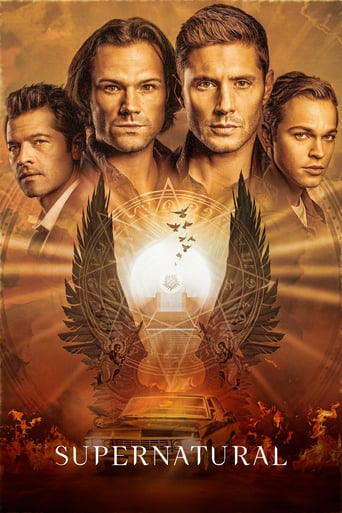
Supernatural
September. 13,2005
8.4
#8

The Last Dance
April. 19,2020
9.1
#9

Euphoria
June. 16,2019
8.3
#10

Fear the Walking Dead
August. 23,2015
6.8

